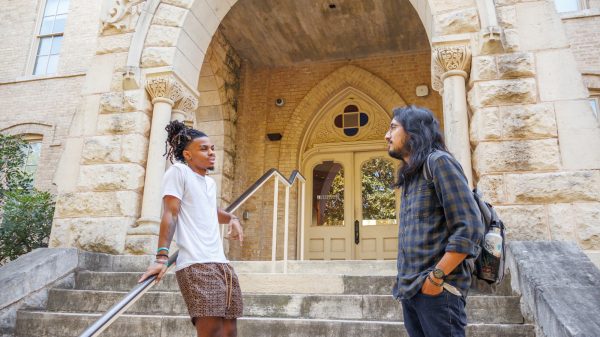Scientific studies should be valued

I see a scary trend hitting our campus: the “brain-drain” away from scientific studies. This is an especially pertinent topic for me since I have firsthand experience.
During my freshmen year at St. Edward’s University, I shifted all the way from a major in Computer Science to Global Studies. The university is not at fault; this is a much larger issue that has been bugging the nation for a while. America has led scientific advancement for so many decades, but we are sure to see a shift to countries like India, China, and Brazil for the upcoming years simply because more and more scientific degrees are bound for those countries while fewer are put to use here.
Since this is a national issue, it seems improbable that universities alone would be able to shift the ratio back in the next few years. I would contend that these problems derive from societal opinions on scientific studies.
For example, an American primetime television show can center around the lives of geeks, but the humor is mainly that of an outsiders’; the laughs are had at the expense of the main cast of “geniuses.”
Meanwhile, newspapers rave over which celebrities are brought to the White House and the red carpet is an everlasting symbol of success. Gone are the days of the Cold War when scientists and their newest discoveries were at the heart of society. Essentially, today’s youth have very few scientific role models. In such a climate, it makes sense to see such a shift in the younger generations.
Regardless, there still remains a growing population in the scientific social communities. They are bound close by their interests and, in my experience at least, they are respected rather than ridiculed by the populace.
Though they may not be in the scientific workforce, the interest is still there, driving them to stay connected on their own time. These things give me hope for the future and confidence that, no matter where the scientific wonders of the future are created, America will not be far behind.





